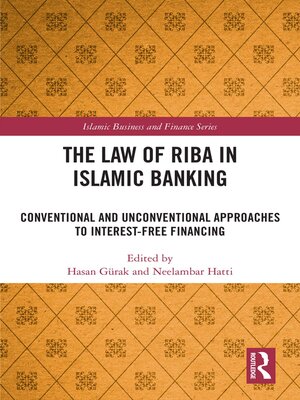The Law of Riba in Islamic Banking
ebook ∣ Conventional and Unconventional Approaches to Interest-Free Financing · Islamic Business and Finance Series
By Hasan Gürak

Sign up to save your library
With an OverDrive account, you can save your favorite libraries for at-a-glance information about availability. Find out more about OverDrive accounts.
Find this title in Libby, the library reading app by OverDrive.



Search for a digital library with this title
Title found at these libraries:
| Library Name | Distance |
|---|---|
| Loading... |
The issue of riba, that is, interest/the "excess" or "surplus" on loans is crucial for both Islamic and non-Islamic countries. Western economic systems use interest to distribute financial resources efficiently for investment and/or consumption, while Islamic economies pursue a completely different strategy for financing loans, which adheres to Islamic laws and prohibits the activities of conventional banking systems with regard to interest. This book argues that there is scope for new definitions and analysis based on alternative concepts which respect Islamic values and principles, yet pave the way for modification and debate.
The book comprises of two parts. Theoretical issues are dealt with in the first section. The first two chapters examine conventional Islamic views on the prohibition of riba, while Chapters 3 and 4 contain unprecedented and alternative theoretical analysis based on concepts such as "earned" (halal-permitted-legal) vs. "unearned" (haram-impermissible-illegal) income and SUKUK, that is, Islamic interest-free bonds. The second part of the book tackles another unconventional aspect of Islamic finance, that is, the concept of NAS. The book considers whether the NAS-influenced anti-inflationary interest policy was a success or failure. Empirical data is evaluated in terms of bank incomes, inflation rate, interest rate, and the distribution of income.
This book will be a useful guide for students, scholars, and researchers of Islamic banking and finance.







